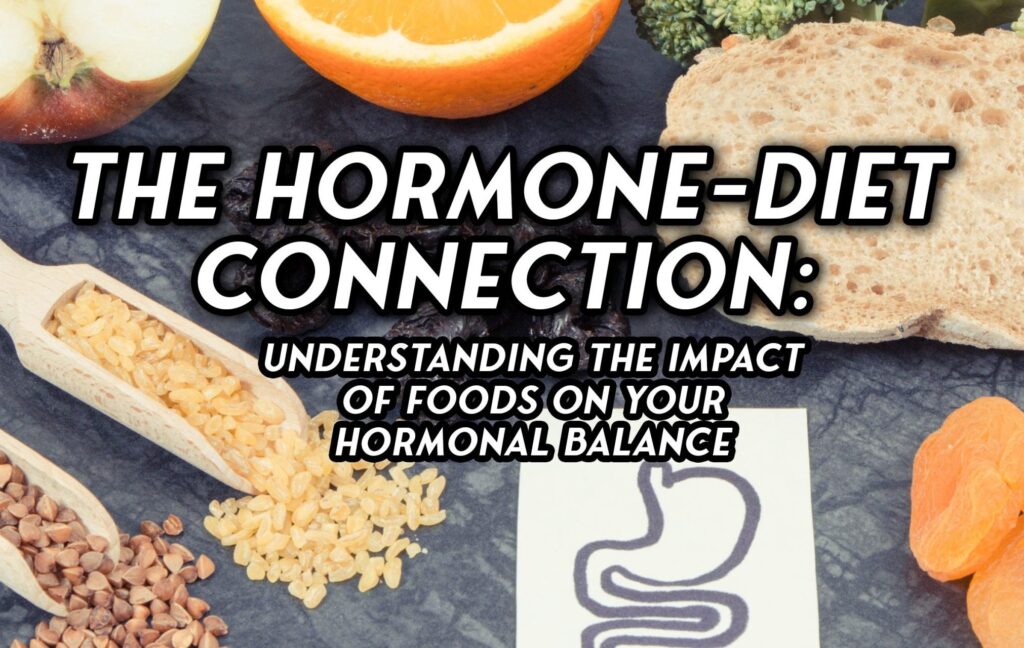How Diet Impacts Hormones
Hormones play a vital role in your body’s overall health. They regulate hunger and fullness, digestion and metabolism, mood, reproduction, and even the aging process. Because hormones function in a tightly coordinated system, what we eat can significantly impact hormone levels—either directly or indirectly.
Certain nutrients can stimulate hormone production, while others may suppress it. A balanced diet rich in protein, healthy fats, vegetables, fruits, and whole grains can help support hormonal health. On the other hand, diets high in refined carbohydrates and added sugars can disrupt hormonal balance by triggering spikes in insulin levels.
How Nutrition Affects Specific Hormones
Research highlights how diet influences the production and regulation of key hormones:
• Thyroid Hormones
Their regulation depends on both nutrient intake and meal timing. Nutrients such as selenium, iodine, and iron are essential for proper thyroid function.
• Cortisol (Stress Hormone)
Cortisol levels rise in response to both overeating and starvation. Mediterranean-style diets rich in healthy fats and whole foods are associated with lower fasting cortisol levels, which can improve stress and mood.
• Insulin
This hormone helps your body metabolize carbohydrates (glucose). Both Mediterranean and low-calorie diets have been shown to improve insulin sensitivity and reduce insulin resistance.
• Leptin (Appetite-Suppressing Hormone)
Leptin helps regulate fullness. Diets high in plant-based foods and heart-healthy fats support leptin sensitivity and lower leptin levels, while excessive intake of saturated fats may lead to leptin resistance and contribute to obesity.
• GLP-1 (Glucagon-Like Peptide-1)
GLP-1 enhances feelings of fullness and supports insulin secretion and glucose metabolism. Increasing dietary fiber has been shown to naturally boost GLP-1 levels and improve metabolic function.
Hormone Imbalances and Diet
Imbalanced hormone production can also result from poor dietary habits:
• Cortisol
Caffeine can increase cortisol levels, especially in high amounts. Diets high in sodium—typical of the Western diet—are also linked to elevated cortisol.
• Insulin, Ghrelin, and Leptin
Diets high in sugar increase insulin demand, which may disrupt ghrelin and leptin levels, contributing to obesity and type 2 diabetes.
• Sex Hormones
Alcohol intake can alter hormone levels in both men and women. It reduces testosterone, disrupts menstrual cycles, increases cortisol, and inhibits insulin release.
The Bottom Line
Understanding how specific foods affect hormone levels can be complex, but the key takeaway is moderation and variety. Avoid overconsumption of any single food group and aim for a well-rounded diet. Focus on lean proteins like poultry, fish, or plant-based sources; healthy fats; plenty of vegetables and fruits; and whole grains. This approach can help maintain hormonal balance and support long-term health.
